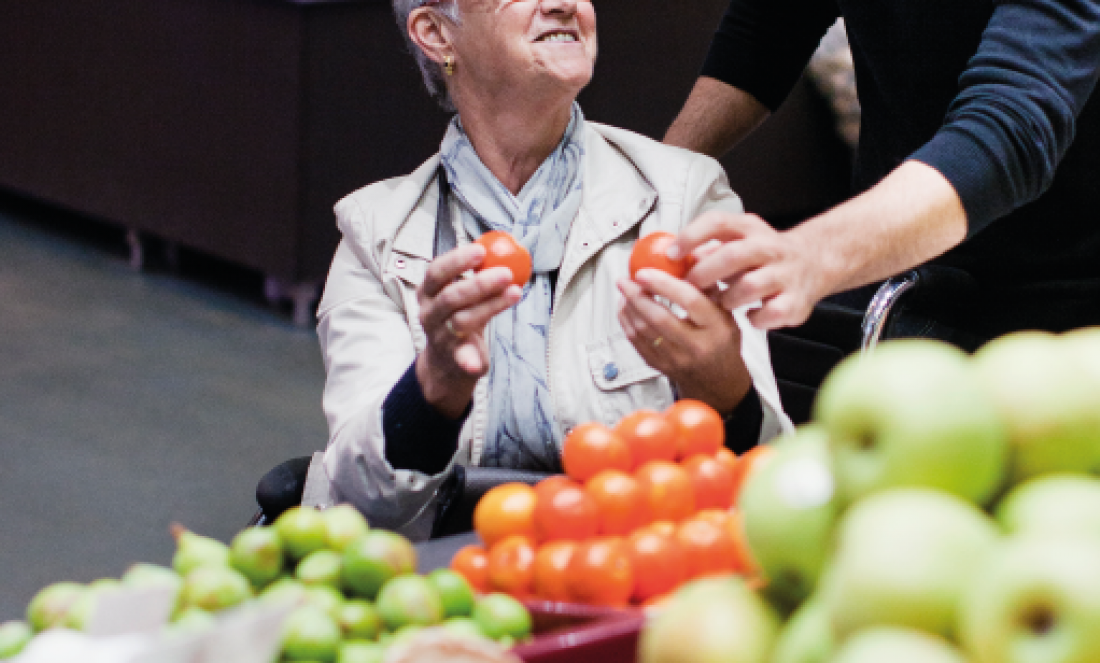
Nutrition in old age
The aging process causes oxidation and dehydration in our body and also a series of changes.
- Increase in fatty adipose tissue.
- Reduction of the lean mass.
- Decrease in total body fluids.
- Reduction in the amount of calcium and the quality of the bone.
- Tendency to increase blood pressure.
- Decrease in tolerance and carbohydrates
- A decrease in intestinal mobility.
The NUTRI 2000 study based on reports from family doctors revealed that 15% of the elderly have a quantitative and qualitative deficit in food intake. This situation leads to a phenomenon of sub-clinical malnutrition that does not produce clinical symptoms but is manifested by a decline in immune and regenerative capacity. Hospitalisation, stress and IQ reveal this situation and are a breeding ground for complications.
All this information can guide us towards what may be the best diet when we age.
Adequate nutrition has a very positive influence on the ageing process:
- This should be a small amount and spread over 4-5 meals and the last one should be very frugal. Long periods of fasting should be avoided in the diet. It is best to have 5 meals distributed as follows:
- BREAKFAST (not a cup of coffee) (dairy+wholemeal cereals+fruit): 20%
- MID-MORNING: 10
- FOOD: 25-30%
- SNACK: 10-15%
- DINNER: 25%
- DIET COMPOSITION: Protein: 12% Fat: 30% HC: 58%
2. In principle we have to say that it must be poor in fat, that is, poor in sausages, viscera, butter, bacon, pastries. With regard to meat, we must avoid fatty meats and not eat pork or lamb and tend to use chicken or beef. You should moderate fried foods. Avoid burning oil. And use only olive or sunflower oil. Products containing palm or coconut oil (biscuits, buns, sweets, nougat), butter, lard or tallow should be replaced with olive oil as these products increase arteriosclerosis.
3. FISH: low in calories that are easily digested, proteins of high nutritional value, polyunsaturated fatty acids, vit E, sodium and potassium/ 3 times a week.
4. We should drink abundant liquids between one and a half and two litres a day and this should be water, milk, juices and infusions. We should avoid sweetened drinks, and we can drink one or two glasses of wine.
5. It should be rich in milk derivatives, if possible skimmed and this translates into half a litre of milk a day and one of the desserts that is made with milk.
6. It should normally be a low-salt diet.
7. Poor in purified carbohydrates i.e. poor in sugar, cakes and pastries and richer in legumes and wholemeal foods.
8. Rich in fibre: fruit, vegetables, salads which are also vitamin-rich substances. It is advisable to eat two pieces of fruit per day, one acidic or citrus fruit and one seasonal fruit. The problem with fruit and vegetables is that they are expensive for old people's pensions, but it should be borne in mind that these products are the main source of vitamins and minerals.
9. It must be easy to chew.
10. Boiling, grilling or roasting will be the culinary method of choice.
11. Easy to digest. Avoiding spices, excessive fats.
12. If you have little appetite, occasionally accompany your diet with a daily vitamin complex.
13. Do not eat alone.
14. Physical exercise: it is fundamental for a good nutritional state as it makes better use of the nutrients.
FUNDAMENTAL: Specialists recommend walking between 30-60 minutes/day. Those who are not used to using the car less and get off one or two stops before the bus. See advice on sport in this same section
NOTES:
- Antioxidants and diet: fruit, vegetables (5-7 days/week) (carotenes, pepper and all those of an orange or dark green colour), bread (100-180 grams/day) or cereals, cocoa, wine (1-2 glasses/day), tea (2-3 cups/day) and olive oil. Vegetables every 2-3 days.
- NOTE: Foods containing fruit (yoghurts, desserts, juices...) are not a substitute for fruit in general, as the fruit content of these products is usually testimonial, but advertising attributes to them all the benefits of whole fruit when this is not true and does not replace it in any case. They contain: vitamins, fibre, potassium and magnesium. Fruit should be the dessert of one of the two meals and we should get into the habit of having one piece at breakfast every day + dairy + cereals + HC (bread, toast, biscuits)

Add new comment